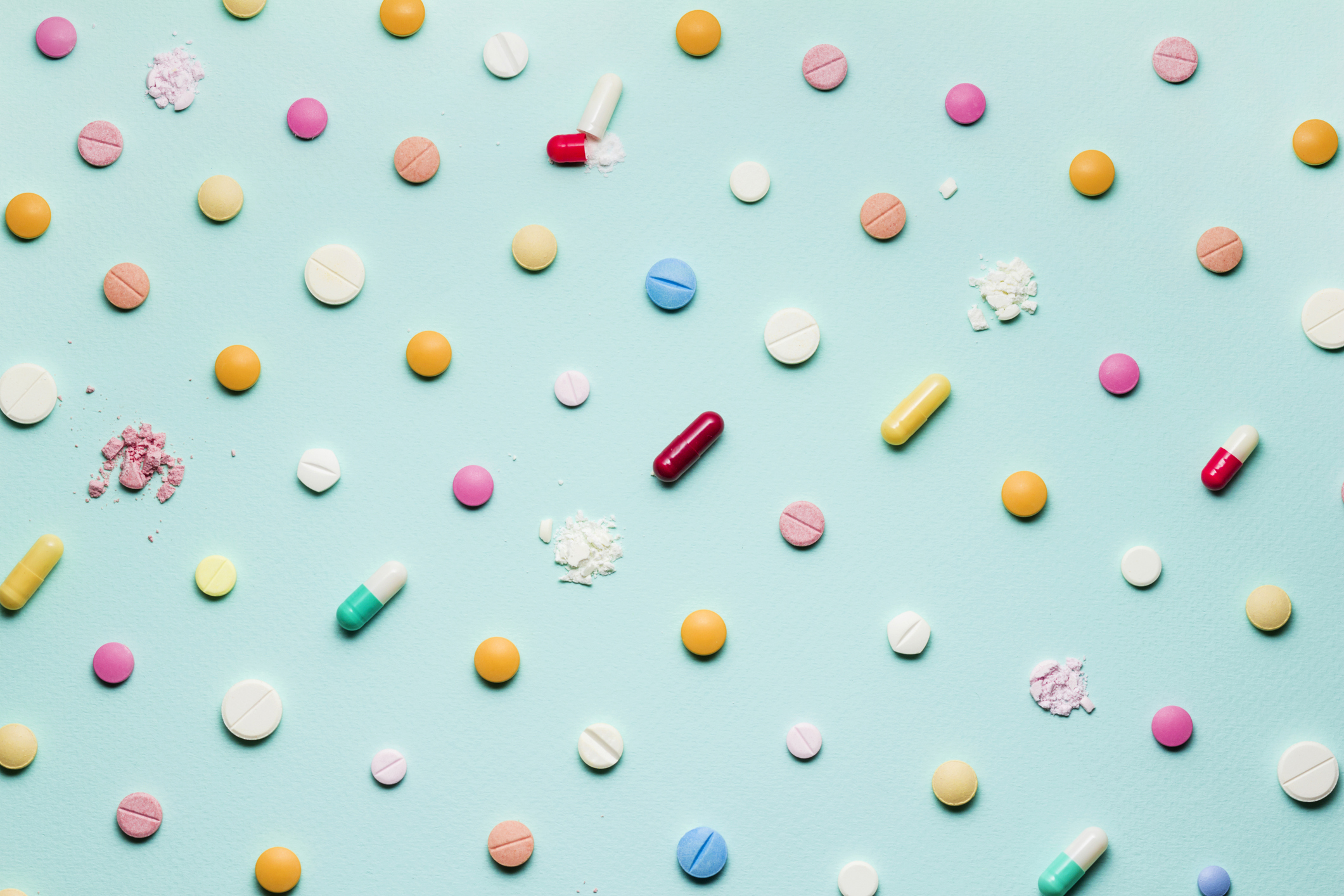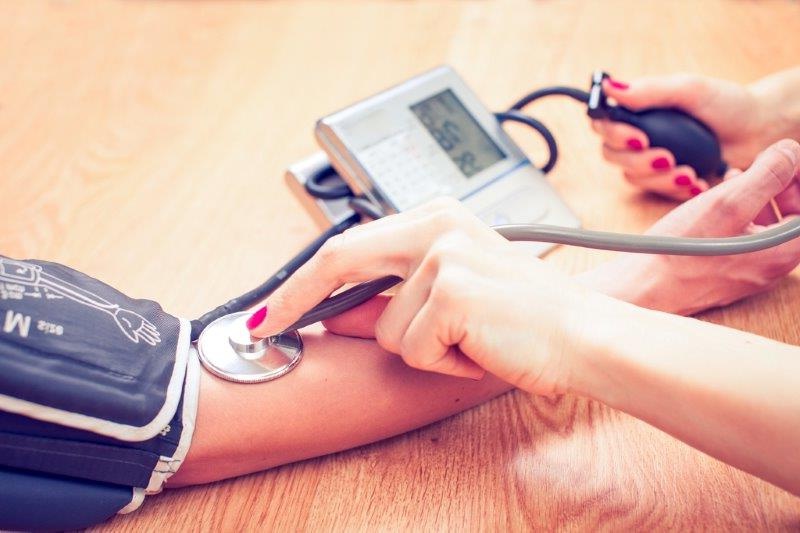-
At one time or another most of us will take some kind of medication – whether it's prescription, complementary or supplementary. The older we get, the more common it becomes, with many older people following complex medication regimes.
Obviously, these medications are – for the most part –taken for good reason. But what are the ‘quiet’ side effects? Not the concerning side effects the doctor talks to you about, but the unexpected, underlying ones that can impact on your general quality of life, without you realising it?
Oral health is often an overlooked aspect of your general health. Taking medications of any type or form can, and often does, impact negatively on your oral health. That is why it is really important to tell your oral health professional about all the medications you are taking when you attend your regular oral health assessments, for example, your dental check-up.
Which medications affect your oral health?
Complementary medications like ginger, garlic and glucosamine can impact on your blood clotting and will affect the type of cleaning you get from your oral health professional1.
Common medications like antihistamines, anticoagulants, antihypertensive and antidepressants (Notice a common theme here?) along with many others can significantly compromise your saliva flow2.
Other medications may impact on your general oral health in other ways, so make sure you let your oral health professional know what you’re taking at every visit.
MORE: 7 signs it's time to see a dentist
Dry mouth? Medications can affect your saliva flow
Do you ever find that when you eat some foods your mouth is too dry and it feels almost impossible to swallow? Or worse, you find it hard to speak because your mouth is so dry?2,3
These could be signs of serious problems with your saliva flow. Saliva is an essential part of the digestive system. It’s full of good things – proteins and enzymes – that help to break down food and kick off the digestive process.
If you’re taking medications that compromise the production of saliva, this could seriously affect what types of foods you can eat, and increase the risk of choking!4,5
Some experiences of dry mouth - like waking up in the morning and feeling like your mouth is all dried out - are within a normal range. This is called ‘xerostomia’. 6
Not drinking enough water, or general dehydration due to work, air-conditioning or exercise can be responsible for xerostomia. Drinking too much coffee, alcohol or soft drinks can also impact negatively on adequate saliva flow.6
However, some saliva flow issues can be more serious and are connected to underlying medical conditions. This is known as salivary gland hypofunction.
MORE: How to stay hydrated
Managing the oral health effects of medications
If you feel like your mouth is dry at times, for any reason, it is really important to let your oral health professional know so they can help identify what the problem is and arrange a referral for further investigation if necessary.6,7 Don’t take it for granted and ignore it. Get it checked out. Saliva is the friend of good oral health and if it’s not flowing well, your mouth can really suffer.
Remember – your mouth is connected to your body and your oral health can be affected by anything you put into your system.
If you’re going to take or are prescribed any medications or supplements, ask or investigate what effects they will have on your saliva.
Drink water – it’s free and healthy in Australia - to ensure your saliva stays plentiful and protective.
And remember to tell your oral health professional what you’re taking so you can get the best, personalised advice to meet all your oral health needs.
Hard to swallow

1. Abebe, 2002, An overview of herbal supplement utilization with particular emphasis on possible interactions with dental drugs and oral manifestations. Journal of dental hygiene: JDH/American Dental Hygienists' Association, 77(1), 37-46.
2. Bergdahl, M. (2000). Salivary flow and oral complaints in adult dental patients. Community Dentistry and Oral Epidemiology, 28(1), 59-66.
3. Ikebe, K., Matsuda, K.-i., Morii, K., Wada, M., Hazeyama, T., Nokubi, T., & Ettinger, R. L. (2007). Impact of dry mouth and hyposalivation on oral health-related quality of life of elderly Japanese. Oral Surgery, Oral Medicine, Oral Pathology, Oral Radiology, and Endodontology, 103(2), 216-222.
4. Gallagher, L., & Naidoo, P. (2009). Prescription drugs and their effects on swallowing. Dysphagia, 24(2), 159-166.
5. Turner, M. D., & Ship, J. A. (2007). Dry mouth and its effects on the oral health of elderly people. The Journal of the American Dental Association, 138, S15-S20.
6. Hopcraft, M., & Tan, C. (2010). Xerostomia: an update for clinicians. Australian dental journal, 55(3), 238-244.
7. Abebe, W. (2002). An overview of herbal supplement utilization with particular emphasis on possible interactions with dental drugs and oral manifestations. Journal of dental hygiene: JDH/American Dental Hygienists' Association, 77(1), 37-46. Bergdahl, M. (2000). Salivary flow and oral complaints in adult dental patients. Community Dentistry and Oral Epidemiology, 28(1), 59-66. Diaz-Arnold, A. M., & Marek, C. A. (2002). The impact of saliva on patient care: A literature review. The Journal of prosthetic dentistry, 88(3), 337-343. Gallagher, L., & Naidoo, P. (2009). Prescription drugs and their effects on swallowing. Dysphagia, 24(2), 159-166. Hopcraft, M., & Tan, C. (2010). Xerostomia: an update for clinicians. Australian dental journal, 55(3), 238-244. Ikebe, K., Matsuda, K.-i., Morii, K., Wada, M., Hazeyama, T., Nokubi, T., & Ettinger, R. L. (2007). Impact of dry mouth and hyposalivation on oral health-related quality of life of elderly Japanese. Oral Surgery, Oral Medicine, Oral Pathology, Oral Radiology, and Endodontology, 103(2), 216-222. Plemons, J. M., Al-Hashimi, I., & Marek, C. L. (2014). Managing xerostomia and salivary gland hypofunction: executive summary of a report from the American Dental Association Council on Scientific Affairs. The Journal of the American Dental Association, 145(8), 867-873.
-
Am I just worried, or is it anxiety?
Understand what’s healthy when it comes to feeling anxious.
-
Where to get health support in Australia
An Overseas Student Health Cover member’s guide to key health services and when to use them.
-
How can Australian pharmacies help you?
What can you buy at a pharmacy? Do you need a prescription? Can pharmacists identify health conditions? Everything international students need to know about pharmacies in Australia.
-
How to prevent type 2 diabetes with diet
Diet plays an important role in the prevention and management of type 2 diabetes. Here’s what you should and shouldn’t eat.
-
High blood pressure: how health cover can help
Put your health cover to use
-
Why you should get the 2023 flu vaccine
More than three years on from the start of the COVID-19 pandemic, getting a flu jab this winter is even more important. Here’s why.
Subscribe to receive the best from Live Better every week. Healthy recipes, exercise tips and activities, offers and promotions – everything to help you eat, move and feel better.
By clicking sign up I understand and agree to Medibank's privacy policy






